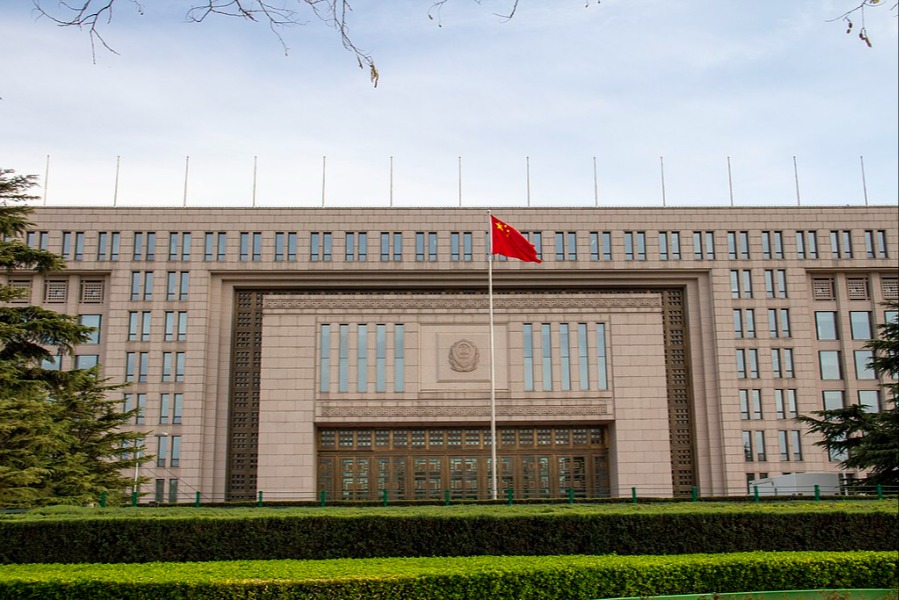The Mystery Grand Jury Case and Criminal Prosecutions of State-Owned Enterprises
A mysterious judgment in a case with purported ties to the Mueller investigation highlights a topic of growing significance: the criminal prosecution of foreign-state-owned enterprises. The judgment by the U.S. Court of Appeals for the D.C.
Published by The Lawfare Institute
in Cooperation With

A mysterious judgment in a case with purported ties to the Mueller investigation highlights a topic of growing significance: the criminal prosecution of foreign-state-owned enterprises. The judgment by the U.S. Court of Appeals for the D.C. Circuit in In re Grand Jury Subpoena involves the subpoena of an unnamed corporation owned by an unidentified foreign state and engaged in commercial activity. Such entities are often called “state-owned enterprises” (SOEs), which the Organization for Economic Cooperation and Development (OECD) defines as “any autonomous public entity i) involved in commercial activities and ii) controlled, directly or via other government-controlled institutional units, by the central or federal level of government.”
Although the D.C. Circuit’s opinion does not disclose whether the foreign state in question is facing potential criminal sanctions beyond those for failure to produce the information requested in the grand jury subpoena, the judgment is part of an unmistakable trend toward the criminal prosecution of foreign organizations with ties to foreign governments. Recent important examples include the 2012 indictment of the Pangang Group Company, Ltd., a group of Chinese state-owned enterprises, for violating the Economic Espionage Act and the September, 2018 indictment of Fujian Jinhua Integrated Circuit Co. Ltd. (Jinhua), a manufacturing enterprise established in China, for economic espionage and conspiracy to commit theft of trade secrets in violation of 18 U.S.C. §1832(a)(5). The In re Grand Jury judgment addresses a legal issue with potentially broad implication for those cases: immunity under the Foreign Sovereign Immunities Act (FSIA).
The In re Grand Jury Subpoena opinion concluded that the defendant in that case was not entitled to immunity under the commercial activity exception, assuming that the FSIA applied. But there are strong reasons to conclude that the FSIA does not apply in criminal cases. Nothing in the legislative history or purpose of the act suggests that Congress had criminal prosecutions in mind when it was enacted. The procedural parts of the statute, such as venue, service, and default, do not apply to criminal prosecutions. The government has argued previously that the FSIA does not apply to criminal cases.
Under 28 U.S.C. §1604, the FSIA grants immunity unless an exception applies, and some of the exceptions are written in terms of civil cases. That language suggests that Congress did not intend the statute to apply to criminal prosecutions. It also means that if the FSIA applies, it might confer broader immunity from criminal prosecution than it does in similar civil cases. For example, the §1605(a)(5) exception for a “tortious act or omission” could be interpreted as inapplicable to criminal actions. So if the FSIA applies in criminal cases, it might confer an immunity in criminal prosecutions that would be unavailable in civil cases.
If the FSIA does not apply, SOEs are still entitled to federal common law immunity. The In re Grand Jury Subpoena opinion suggests as much, noting that “historical sources suggest that foreign sovereigns might have been able to raise an immunity defense in a criminal case…the immunity defense was a creature of the common law.” There are reasons to develop federal common law immunity to be consistent with FSIA immunity, but the outcomes are not necessarily always the same. And the executive branch claims that it controls immunity determinations under federal common law but not under the FSIA, which would mean that common law immunity would not be available in prosecutions brought by the federal government. The better argument, however, is that the government does not control common law immunity, meaning that would allow the courts could confer such immunity if a SOE is entitled to it under federal common law, even in criminal prosecutions brought by the Justice Department. In the in re Grand Jury Subpoena case itself, the commercial activity exception might apply whether under federal common law or the FSIA, so the distinction may not matter. The opinion does disclose the underlying facts, so it is hard to say more.
The In re Grand Jury Subpoena opinion is potentially important in other SOE prosecutions, including those against Pangang and JHICC. If those defendants raise immunity issues, a threshold question is whether the FSIA applies in criminal prosecutions, Even if the FSIA does apply, defendants might not be entitled to immunity under the statute. For example, just as in the In re Grand Jury Subpoena case, a defendant’s conduct may be commercial, so that an exception to immunity applies under 28 U.S.C. §1605 (a)(2) in any event. Conduct can qualify as “commercial” even if it is criminal. (See Restatement (Fourth), The Foreign Relations Law of the United States, §454 rn. 3.). Second, the ownership structure of the organizations might make the defendant ineligible for immunity under the FSIA. SOEs may qualify for foreign-state immunity under the FSIA (28 U.S.C. §1603(b)(2)) if “a majority” of their “shares or other ownership interest is owned by a foreign state or political subdivision thereof.” The Supreme Court has held that indirect ownership interests by a foreign state are insufficient.
In the In re Grand Jury Subpoena case, the foreign-state ownership was direct, so the SOE was entitled to immunity under the FSIA unless an exception applied. In the Jinhua case, China’s ownership of Jinhua may be indirect, however. Jinhua was established in 2016 with the purpose of designing, developing, and manufacturing dynamic random-access memory (DRAM). The defendants allegedly stole trade secrets from a Taiwan-based subsidiary of U.S.-based DRAM manufacturer, Micron. Jinhua’s two largest shareholders, Electronics & Information Group Co. Ltd. and Jinjiang Energy Investment Co. Ltd., are allegedly both Chinese state-owned enterprises, but are not the Chinese state itself.
If the grand jury winds up indicting the SOE to which it issued a subpoena, then the government will need to serve the SOE. Service-of-process issues have been simplified by a chain of events in the Pangang prosecution. For years after the 2012 indictment, the government attempted to serve Pangang without success. Ultimately, the Justice Department successfully asked the Advisory Committee on Criminal Rules to amend Criminal Rule 4 to permit additional methods of service on organizations not within a judicial district of the United States. Under Federal Rule of Criminal Procedure 4(c)(3)(D)(ii), those methods now include an open-ended provision allowing for service by “other means that give notice.” Pangang was served in connection with its entry of a special appearance to contest service—a method of service affirmed by the Ninth Circuit in an August 2018 opinion. The amendment to Rule 4, and the Ninth Circuit’s expansive interpretation of it, will make it easier to successfully prosecute foreign corporations, including SOEs. Immunity defenses, if any, have not yet been raised by the Pangang defendants.
An additional issue that might arise in any prosecution arising out of in re Grand Jury Subpoena case is whether SOEs have constitutional rights at all. The Pangang opinion from the Ninth Circuit suggested that SOE defendants are entitled to constitutional due process protections. Yet the Supreme Court has suggested, and many lower courts have held, that foreign states are not entitled to due process protections in civil cases. Foreign corporations, the Supreme Court has held, are entitled to due process. If those lines of cases are correct, there is constitutional distinction between foreign states (without due process rights) and foreign corporations (with due process rights). Lower courts have applied a federal common law test based on the Bancec case (First National City Bank v. Banco Para el Comercio Exterior de Cuba) to draw this constitutional distinction. In a forthcoming paper focusing on civil cases, I argue that foreign states are entitled to due process protections and that there is no constitutional distinction between foreign corporations and foreign states, at least for some due process protections. Even if foreign states are entitled to certain due process protections, a variety of questions remain. The constitutional rights of domestic corporations are not entirely clear in the criminal context, nor is the application of constitutional protections to conduct abroad—and even if foreign corporations are constitutionally protected in criminal prosecutions, there remains the issue of whether foreign states share all of those protections. If they do not, the constitutional status of SOEs adds yet another layer of uncertainty.





